Workplace safety is a top priority for every employer, but one crucial aspect that often gets overlooked is vision health. Whether in construction, transportation, manufacturing, or office settings, clear vision is essential for ensuring efficiency, preventing accidents, and maintaining compliance with industry regulations. Employees who experience uncorrected vision problems may struggle with focus, depth perception, and overall performance—leading to costly mistakes and serious safety risks.
Regular vision screenings are a proactive solution that can significantly improve workplace safety and productivity. Let’s explore why vision health matters, the risks of neglecting it, and how implementing screenings can benefit both employees and employers.
The Risks of Poor Vision in the Workplace
Unaddressed vision problems can impact employees in several ways, from minor discomfort to major safety hazards. Here are some of the key risks associated with poor vision in the workplace:
1. Increased Workplace Accidents
Employees with impaired vision may struggle to see hazards such as moving machinery, slippery floors, or warning signs. This is especially critical in high-risk industries like construction, warehousing, and transportation, where depth perception, clarity, and peripheral vision are essential. Inaccurate vision can lead to misjudging distances, improperly handling tools, or failing to notice hazards—all of which can result in workplace injuries or even fatalities.
2. Reduced Productivity and Efficiency
Workers who experience blurry vision, eye strain, or headaches due to uncorrected vision problems may struggle to stay focused on tasks. This can lead to slower work performance, an increase in errors, and decreased efficiency. Employees who spend long hours working with screens, machinery, or detailed reports may find it difficult to concentrate if their vision is not clear.
3. Higher Rates of Absenteeism
Vision-related health issues, such as eye strain and headaches, can contribute to employee absenteeism. If employees experience chronic discomfort due to poor vision, they may take more sick days or require medical attention, leading to increased downtime and lost productivity for businesses.
4. Increased Workers' Compensation Claims
Workplace accidents caused by poor vision can result in costly workers' compensation claims. If an employee gets injured due to an undiagnosed vision problem, the employer may be liable for medical expenses, lost wages, and other damages. Vision screenings can help prevent such incidents by identifying problems before they lead to injuries.
5. Failure to Meet Safety Compliance Standards
Many industries require employees to meet specific vision standards for safety reasons. For example, commercial drivers, pilots, and machine operators must pass regular vision exams to maintain their licenses. Employers who fail to provide vision screenings for safety-sensitive roles risk non-compliance with Occupational Safety and Health Administration (OSHA) and Department of Transportation (DOT) regulations, which can result in fines or legal consequences.
The Benefits of Regular Vision Screenings for Employees
Implementing regular vision screenings in the workplace provides a range of benefits, including:
1. Early Detection of Vision Problems
Routine screenings can help identify vision impairments such as nearsightedness, farsightedness, astigmatism, and other conditions before they become serious. Early detection allows employees to seek corrective measures, reducing potential safety hazards and improving overall well-being.
2. Increased Workplace Safety
By ensuring employees have clear vision, businesses can minimize workplace accidents and create a safer environment. Workers who can see clearly are more aware of their surroundings and better equipped to perform their duties without risking injury.
3. Improved Employee Performance and Job Satisfaction
Employees who receive regular vision screenings and corrective measures, such as prescription glasses or contact lenses, are more comfortable and efficient at their jobs. Reduced eye strain leads to better concentration, improved accuracy, and increased job satisfaction.
4. Lower Healthcare Costs and Fewer Claims
Preventive vision screenings can help reduce the long-term costs associated with untreated vision issues. By addressing problems early, employers can prevent medical complications that may lead to expensive treatments, insurance claims, and lost productivity.
5. Compliance with Safety Regulations
Industries such as construction, transportation, and manufacturing require employees to meet specific vision standards. Regular screenings ensure compliance with OSHA, DOT, and other regulatory bodies, reducing the risk of fines and legal consequences.
How Workplace Safety Screenings Can Help
We offer comprehensive vision screening services tailored to various industries. Our screenings are designed to be:
Quick and Non-Invasive – Employees can be tested efficiently without disrupting their work schedules.
Accurate and Reliable – Our screenings provide precise results that help employers take action when necessary.
Compliant with Industry Standards – We ensure that your workforce meets vision requirements for workplace safety and regulatory compliance.
By investing in vision screenings, businesses demonstrate a commitment to employee well-being while improving operational efficiency and reducing risks.

.png?width=500&height=500&name=Blue%20and%20White%20Classic%20Shield%20Financial%20with%20Star%20Logo%20Design%20(1).png)


